Question And Answer
Publications
Articles, publications, books, tools and multimedia features from the U.S. Institute of Peace provide the latest news, analysis, research findings, practitioner guides and reports, all related to the conflict zones and issues that are at the center of the Institute’s work to prevent and reduce violent conflict.

Tegan Blaine on Climate Change and Peacebuilding
After the annual PeaceCon featured climate change as one of the conference’s main themes, USIP’s Tegan Blaine says, “It’s no longer possible to say that climate change does not intersect with peacebuilding. The realities are there … we need to be more honest about what the likely impacts are going to be.”

Testimony before the U.S.-China Economic and Security Review Commission
Stephanie Kleine-Ahlbrandt, director of USIP's Asia-Pacific Programs, testifies before the U.S.-China Economic and Security Review Commission hearing on China’s Relations with North Korea.
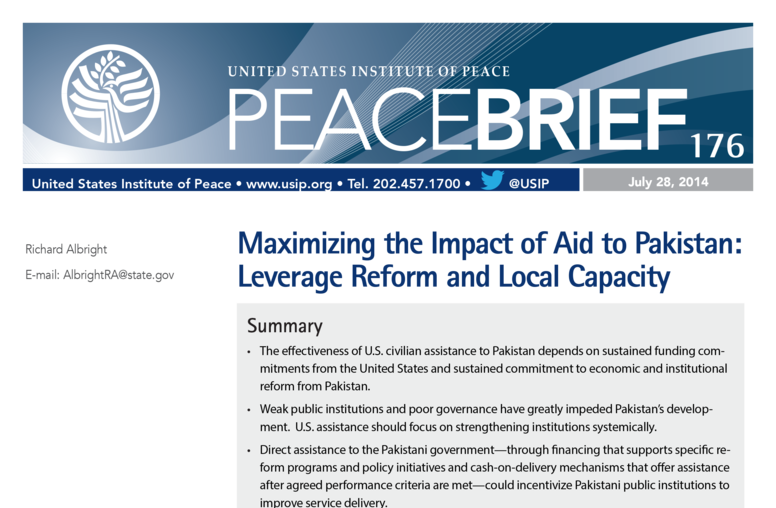
Maximizing the Impact of Aid to Pakistan: Leverage Reform and Local Capacity
Overcoming Pakistan's many challenges, and meeting the development needs of its people, requires working through the institutions of Pakistani governance if sustainable impacts are to be achieved. U.S. aid, if offered consistently and in support of systemic institutional reform, can have a valuable catalytic role to assist and incentivize these efforts.
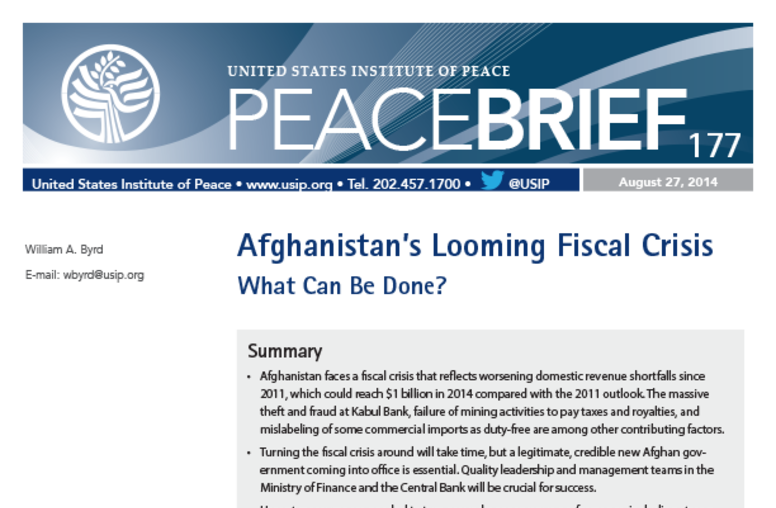
Afghanistan’s Looming Fiscal Crisis: What Can Be Done?
Afghanistan faces a fiscal crisis due in large part to worsening domestic revenue shortfalls. Averting this crisis will require strong leadership from the new Afghan government that will be replacing the Karzai administration. The country’s revenue system and collections need to be improved, corruption reduced, new revenue sources developed and expenditures cut. More international aid also is needed to help stabilize Afghanistan’s budget as the government undertakes these reforms.
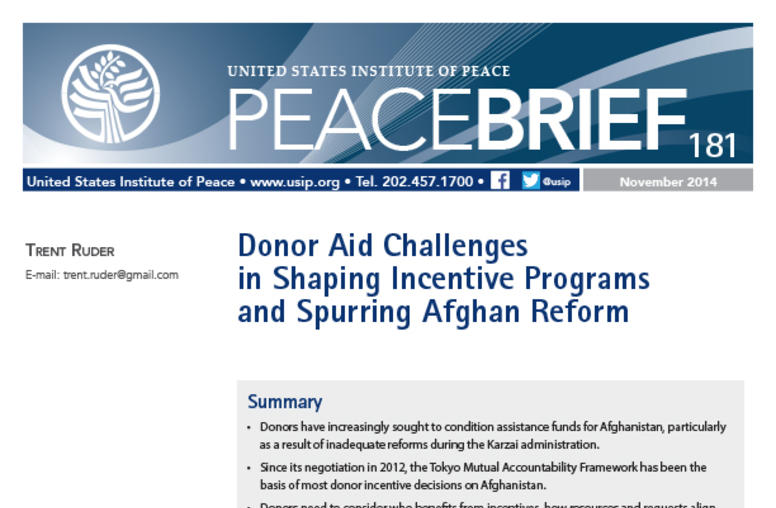
How to Spur Afghan Reforms: The Limits and Benefits of Incentives
Although not a magic bullet, incentive programming can help shape dialogue with the new Afghan administration. What are incentive programs? How do issues such as stakeholder participation, Afghan capacity and consequences of success or failure affect policy decisions for incentive programs? In addressing these questions, this PeaceBrief points the way to more effective incentive programming.
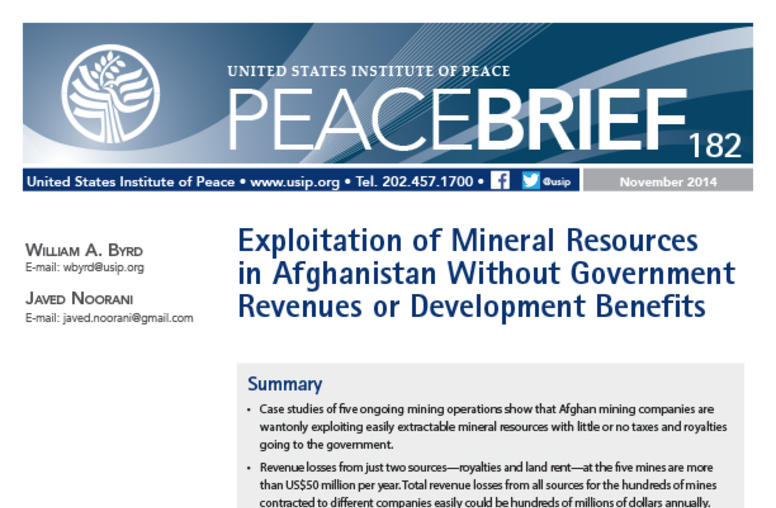
Exploitation of Mineral Resources in Afghanistan
Mining companies in Afghanistan are wantonly exploiting the country’s mineral resources with little or no taxes and royalties going to the government. Contracting of mines has been susceptible to political influence, there is little accountability and sometimes conflicts with local communities have led to violence and deaths. This Peace Brief examines these problems and offers some recommendations to improve the situation.
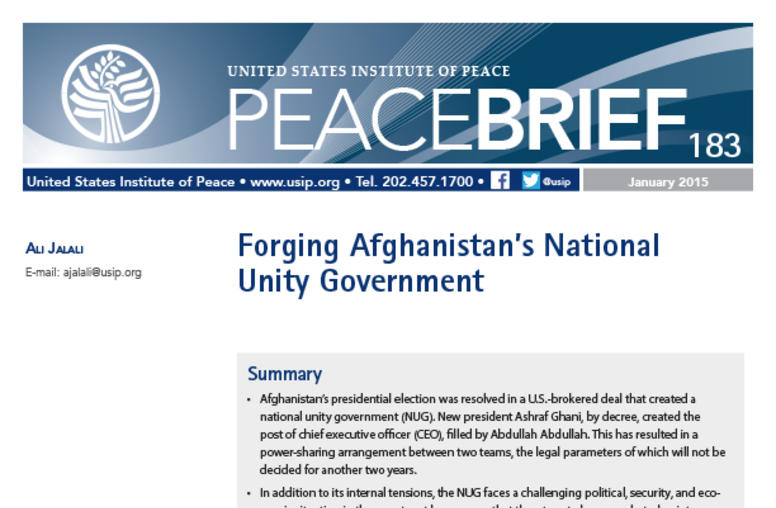
Forging Afghanistan’s National Unity Government
Afghanistan’s presidential election was resolved by a U.S.-brokered deal that led, ultimately, to a power-sharing arrangement within the new national unity government. This has set up tensions within the government—even as Afghanistan’s leaders face an uncertain political, economic, and security situation across the country, as international financial and military support draws down. The formation of the new government, however, also presents opportunities for serious reforms of Afghanistan’s...
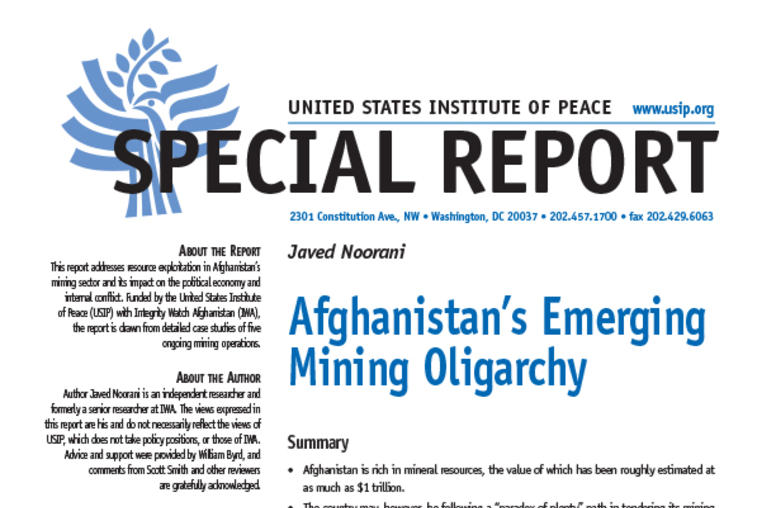
Afghanistan’s Emerging Mining Oligarchy
Rich in natural resources—ferrous and nonferrous metals and strategic minerals in particular—Afghanistan faces a dual threat as international troops withdraw and international aid declines. On the one hand are inadequate government revenues. On the other is the resource curse that affects so many low-income countries. This report, drawn from case studies of five ongoing Afghan mining operations, addresses resource exploitation, its impact on the political economy and internal conflict, and po...
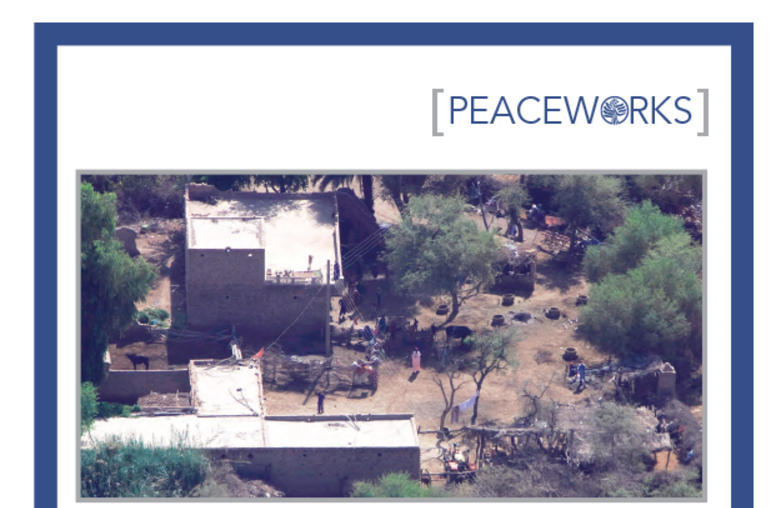
Conflict Dynamics in Sindh
Pakistan’s southern province of Sindh has a reputation for stability, diversity, and tolerance. It is also at a tipping point—increasingly threatened by violent extremism, crime, political corruption, tribal feuds, and nationalist and separatist movements. If the province is not to become yet another base for militants, as areas to the north already are, the government needs to act promptly and decisively. Addressing the security situation in Sindh is also integral to stabilizing Karachi, whi...
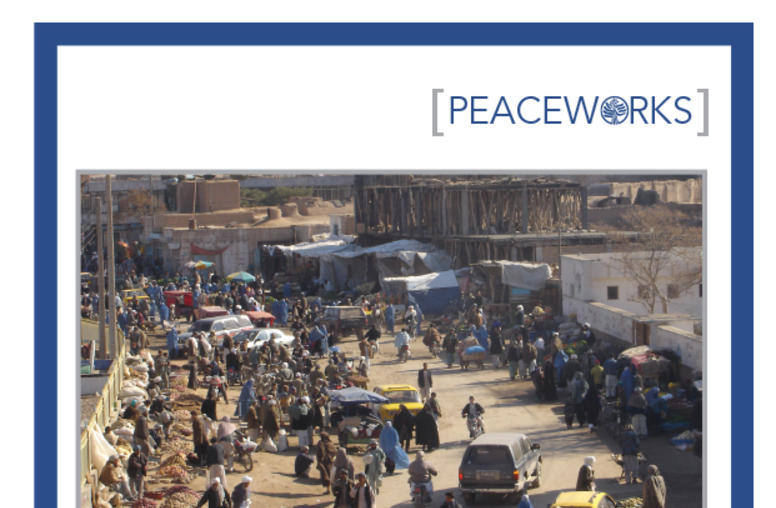
Political and Economic Dynamics of Herat
The city of Herat sits in Afghanistan’s most western province, on the border with Iran, and is significant on several counts. A major trading hub and the largest city in the region, it is in some respects an exemplar for the entire country. One the one hand it is a prevailing spirit of enterprise, on the other persistent insecurity and ad hoc urban development. How the new national unity government in Kabul unfolds will have significant implications for how Herat is able to meet the challenge...